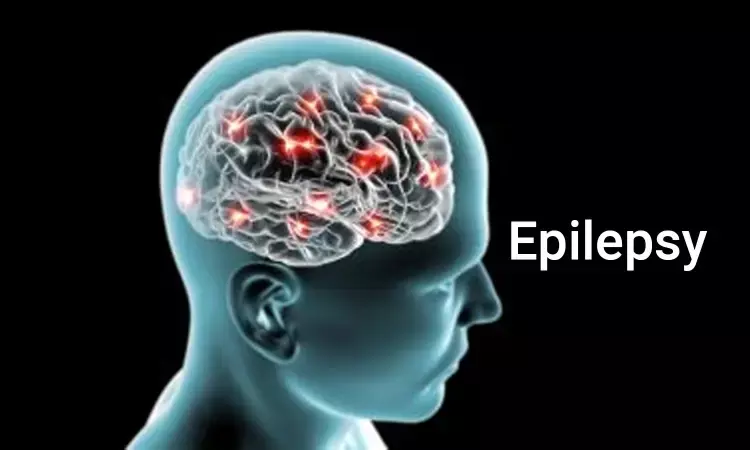- Home
- Medical news & Guidelines
- Anesthesiology
- Cardiology and CTVS
- Critical Care
- Dentistry
- Dermatology
- Diabetes and Endocrinology
- ENT
- Gastroenterology
- Medicine
- Nephrology
- Neurology
- Obstretics-Gynaecology
- Oncology
- Ophthalmology
- Orthopaedics
- Pediatrics-Neonatology
- Psychiatry
- Pulmonology
- Radiology
- Surgery
- Urology
- Laboratory Medicine
- Diet
- Nursing
- Paramedical
- Physiotherapy
- Health news
- Fact Check
- Bone Health Fact Check
- Brain Health Fact Check
- Cancer Related Fact Check
- Child Care Fact Check
- Dental and oral health fact check
- Diabetes and metabolic health fact check
- Diet and Nutrition Fact Check
- Eye and ENT Care Fact Check
- Fitness fact check
- Gut health fact check
- Heart health fact check
- Kidney health fact check
- Medical education fact check
- Men's health fact check
- Respiratory fact check
- Skin and hair care fact check
- Vaccine and Immunization fact check
- Women's health fact check
- AYUSH
- State News
- Andaman and Nicobar Islands
- Andhra Pradesh
- Arunachal Pradesh
- Assam
- Bihar
- Chandigarh
- Chattisgarh
- Dadra and Nagar Haveli
- Daman and Diu
- Delhi
- Goa
- Gujarat
- Haryana
- Himachal Pradesh
- Jammu & Kashmir
- Jharkhand
- Karnataka
- Kerala
- Ladakh
- Lakshadweep
- Madhya Pradesh
- Maharashtra
- Manipur
- Meghalaya
- Mizoram
- Nagaland
- Odisha
- Puducherry
- Punjab
- Rajasthan
- Sikkim
- Tamil Nadu
- Telangana
- Tripura
- Uttar Pradesh
- Uttrakhand
- West Bengal
- Medical Education
- Industry
lamotrigine monotherapy better than carbamazepine in Poststroke Epilepsy: JAMA

Patients with Poststroke Epilepsy receiving lamotrigine monotherapy had significantly lower mortality compared with those receiving carbamazepine, according to a recent study published in the JAMA Neurology.
There is little evidence to guide the choice of antiseizure medication (ASM) for patients with poststroke epilepsy. Theoretical concerns about the detrimental effects of ASMs on survival exist. Enzyme-inducing drugs could interfere with secondary stroke prevention. The US Food and Drug Administration recently issued a safety announcement about the potential proarrhythmic properties of lamotrigine. A group of researchers conducted a study to investigate whether mortality varies with specific ASMs among patients with poststroke epilepsy.
A cohort study was conducted using individual-level data from linked registers on all adults in Sweden with acute stroke from July 1, 2005, to December 31, 2010, and subsequent onset of epilepsy before December 31, 2014. A total of 2577 patients receiving continuous ASM monotherapy were eligible for the study. Data were analyzed between May 27, 2019, and April 8, 2021. The dispensed ASM (Anatomical Therapeutic Chemical code N03A) determined exposure status, and the first dispensation date marked the start of treatment. The primary outcome, all-cause death, was analyzed using Cox proportional hazards regression with carbamazepine as the reference. Cardiovascular death (International Statistical Classification of Diseases and Related Health Problems, Tenth Revision codes I0-I99 as the underlying cause) was assessed using Fine-Gray competing risk regression models.
The Results of the study are:
A total of 2577 patients (1400 men [54%]; median age, 78 years [IQR, 69-85 years]) were included. The adjusted hazard ratio of all-cause death compared with carbamazepine was 0.72 (95% CI, 0.60-0.86) for lamotrigine, 0.96 (95% CI, 0.80-1.15) for levetiracetam, 1.40 (95% CI, 1.23-1.59) for valproic acid, 1.16 (95% CI, 0.88-1.51) for phenytoin, and 1.16 (95% CI, 0.81-1.66) for oxcarbazepine. The adjusted hazard ratio of cardiovascular death compared with carbamazepine was 0.76 (95% CI, 0.61-0.95) for lamotrigine, 0.77 (95% CI, 0.60-0.99) for levetiracetam, 1.40 (95% CI, 1.19-1.64) for valproic acid, 1.02 (95% CI, 0.71-1.47) for phenytoin, and 0.71 (95% CI, 0.42-1.18) for oxcarbazepine.
Thus, the researchers concluded that the cohort study's findings suggest differences in survival between patients treated with different ASMs for poststroke epilepsy. Patients receiving lamotrigine monotherapy had significantly lower mortality compared with those receiving carbamazepine. The opposite applied to patients prescribed valproic acid, who had a higher risk of cardiovascular and all-cause death. Levetiracetam was associated with a reduced risk of cardiovascular death compared with carbamazepine, but there was no significant difference in overall mortality.
Reference:
Association Between Antiseizure Drug Monotherapy and Mortality for Patients With Poststroke Epilepsy by David Larsson et al. published in the JAMA Neurology.
https://jamanetwork.com/journals/jamaneurology/fullarticle/2786668?guestAccessKey=e48c7da8-1104-457e-bbee-ef49f61196e0&utm_source=silverchair&utm_medium=email&utm_campaign=article_alert-jamaneurology&utm_content=olf&utm_term=121321
Dr. Shravani Dali has completed her BDS from Pravara institute of medical sciences, loni. Following which she extensively worked in the healthcare sector for 2+ years. She has been actively involved in writing blogs in field of health and wellness. Currently she is pursuing her Masters of public health-health administration from Tata institute of social sciences. She can be contacted at editorial@medicaldialogues.in.
Dr Kamal Kant Kohli-MBBS, DTCD- a chest specialist with more than 30 years of practice and a flair for writing clinical articles, Dr Kamal Kant Kohli joined Medical Dialogues as a Chief Editor of Medical News. Besides writing articles, as an editor, he proofreads and verifies all the medical content published on Medical Dialogues including those coming from journals, studies,medical conferences,guidelines etc. Email: drkohli@medicaldialogues.in. Contact no. 011-43720751


